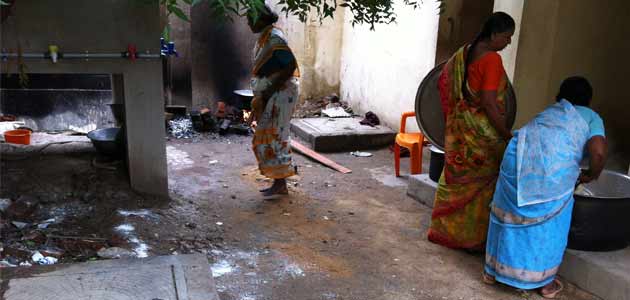Bihar school deaths: Why the government makes a meal out of the mid-day meal scheme
By TV Mohandas Pai
Twenty-three children have died after eating mid-day meal at their school in Bihar. Media reports are highlighting horror stories from many places of how the scheme is being executed. Many things are wrong in the way the mid-day meal programme is implemented in the country. But let us remember that this is the largest programme of its kind in the world. About 12 crore children are given a hot meal everyday. That the programme handles such volumes is itself a wonder. But the scheme, which has been running for more than 10 years, needs a radical overhaul.
First, improve the supply chain of food grain. The quality of rice and wheat from the FCI is not up to standard, and alien material in the bags contaminate food grain. Standardisation is essential. The FCI should ensure delivery of better grain. Other ingredients like spices and pulses need to be supplied in packages.
Storage facilities are primitive in schools, leading to contamination. In many places, kitchens are nonexistent, utensils are in short supply and cooks do not turn up. Teachers are, therefore, burdened with cooking. There are schools that do not have clean drinking water. Fuel is very often not available. It is not just that the funding is inadequate to supply quality food to such large numbers, but most often, funds do not reach schools on time and teachers are forced to buy food to feed the children. On top of this, supervision is almost negligible and government officials do not partake of the meal regularly to monitor quality.
There is neglect all over because children in government schools are mostly from lower-class families: government officials often do not send their children to government schools and the educated middle class has long abandoned them. If the programme is running to the extent it does, it is because of the teachers who, despite odds, strive to feed children regularly.
The scheme needs to change. This doesn't mean that hot mid-day meal is abandoned and factory-made food is supplied. That will be worse as the programme will be captured by vested interests, as has been done in some states for the Integrated Child Development Services.
Funds for the mid-day meal scheme should be increased. There should be better management as well, with teams at district/taluka level monitoring the delivery of materials and inspecting the quality of food. Cooks need to be trained and better paid. The pathetic infrastructure in schools needs to be improved to some basic standard.
Tamil Nadu is a shining example of how government has accepted full responsibility of running such a scheme and run it well for nearly 30 years. The state spends considerably from its own resources to ensure quality. Karnataka has a good scheme and it works well. Many NGOs are running this scheme in districts and doing a good job.
A few other enlightened states are par for the course. It is not that there is bad management all over but execution is a mixed bag.
The biggest challenge is the lack of capability and competence for execution within the government, both in states and at the Centre. Over the last 10 years, annual spending has increased from Rs 7,00,000 crore to over Rs 30,00,000 crore today. The number of schemes has multiplied manifold. A district collector is responsible for over 150 schemes, much beyond his capacity to implement. The number of employees, on the other hand, has almost remained the same for the last 20 years, barring some increase in the number of teachers and in the central police forces.
Governments are working way beyond their capacity. The situation is going to get worse. In five years, the total spending will be over Rs 60,00,000 crore and one shudders to think of the consequences. Sadly, nobody in the state and central governments seems to be concerned about the lack of capability and competence in running a fast-growing economy.
http://economictimes.indiatimes.com...-meal-scheme/articleshow/21174693.cms?curpg=2
